Tag : reproductive justice
January 25, 2021 by Sarah M. Seltzer
The Fight for Reproductive Rights: It Never Ends
As a new 6–3 Supreme Court with Amy Coney Barrett begins hearing cases
about reproductive rights in 2021, and Roe stands on ever-shakier footing, here is
a look back at highlights from decades of Lilith reporting on abortion: much of it
as urgent and relevant as if it were published today.
1981
The battle against abortion is only the first step in an attempt by the New Right to reshape the American political system in its authoritarian image… anti-civil rights for minorities and homosexuals, anti-labor and anti-sex education.
Annette Daum, “The Jewish Stake in Abortion Rights”
1982
A California State Senator has been stripped of a committee chairmanship and fired from a state commission on women after describing abortion supporters as “bulldykes,” “lesbians”
and “murderous marauders” who are hard, Jewish and “arguably” female.
Annette Daum, “Anti-Choice and Anti-Semitic”
1989 If the forces seeking to restrict abortion win out, Jews who follow Jewish law on matters of abortion which says that a mother’s well-being takes precedence over that of the fetus, and
never equated abortion with murder will have that freedom of religion abrogated.
Miriam Arond, “At the Center of the Storm: Jewish Women in Politics Talk About the Issues”
1990
I often claim each woman who gets safely into the clinic for an abortion—18 to 22
each Saturday morning—as a small victory, a vindication for having to interrupt my Shabbat by waking at 5:30 a.m. to drive to the distant reaches of Northeast Philadelphia and stand in a
parking lot, at least six months out of the year in darkness. Escorting is the most concrete form of activism that I know.
Christie Balka, “On the Picket Lines: Defending Abortion Rights”
1990
The abortion issue has become—as, in another way the “JAP” issue was—a pernicious amalgam of anti-Semitism and misogyny.
Susan Weidman Schneider, “The Anti-choice Movement: Bad News for Jews”
1992
Clearly whoever wrote the “One nation handles the problem of abortion in an
intelligent way” piece was either doing shoddy journalism or misguidedly glorifying Israel—or both. The health care system’s view of patient rights is lousy, women’s rights here are lousy, and the abortion issue is no exception.
“Gagged by Red Tape: Israeli Bureaucracy Limits Women’s Access to Information on Abortion”
1993
While many women celebrated January 22nd, 1993, as the twentieth anniversary of Roe v. Wade, the Supreme Court decision protecting a woman’s right to abortion, others, in a horrifying and dangerous manipulation, labeled the date as the beginning of the “American Holocaust.”
Hadar Dubowsky, “Anti-Choice, Anti-Jew”
1997–1998
While Catholic tradition focuses on the soul of the fetus, Jewish law focuses on
the life of the mother.
Leila Bronner, “Is Abortion Murder?”
2003 One of the first acts of George W. Bush as President was to bar health organizations abroad that receive U.S. aid from offering any abortion services.
Alice Sparberg Alexiou, “Bush’s War—The One on Women”
2003 Many women who are now in their 20s and 30s have little historical and no visceral
knowledge of the crises an unwanted or unplanned pregnancy often precipitated in the pre-Roe v. Wade decades… With Washington now trying to pack the courts with anti-choice judges, and with many states restricting access to abortion, we had better be vigilant.
Susan Weidman Schneider, “Letter from the Editor”
2012
The primary obstacle for Israeli women is the “abortion panel,” a three-person committee consisting of doctors and social workers—including at least one woman—that must approve all abortions. Irit Rosenblum, an advocate for reproductive freedom, says “It’s chauvinistic…a relic from the dark ages.”
Elana Maryles Sztokman and L. Ariella Zeller, “Abortion in Israel”
2012
The president of the Lutheran Church—Missouri Synod, told a House
committee, “We object to the use of drugs and procedures used to take the lives of unborn children,” referring not to abortion, but to contraception!
Elana Sztokman, “Confusing Abortion with Contraception”
2013
Legal abortion split the world open to the realities of women’s lives, laid bare in my counseling rooms. They had made the choice to abort, but they still couldn’t believe it was safe and legal. “I won’t be butchered?” they asked. “I won’t die?” They were sure they’d be punished. “Can I really do this thing and go on with my life?” I saw so much vulnerability: legs
spread wide apart; the physician crouched between white, black, thin, heavy, but always trembling, thighs: the tube sucking the fetal life from their bodies, the last thrust and pull of the catheter, then the gurgle that signaled the end of the abortion. Over and over I witnessed women’s relief that their lives had been given back to them. It was a kind of born-again experience.
Merle Hoffman, “Abortion Foremother”
2013
“Livchor”—“to choose.” The first time I went to the abortion clinic, I couldn’t go through with it and left with my pregnancy still intact. During the six days that followed, I came to terms with
the awesome charter of my choice. Okay, this is inescapable, I told myself. I can’t pretend I’m not doing it. “Pro-choice,” “pro-life”—I was taking responsibility for my power.
Deborah Eisenbach-Budner with Rabbi Susan Schnur, “A Ritual for Abortion”
2013
The mountain of anti-choice laws grows ever higher: mandatory waiting periods; mandatory ultrasounds, some of which must be done via vaginal probe; measures that restrict medical students from learning how to perform abortions; building codes that make freestanding abortion clinics adhere to the same strict standards as hospitals. Anti-choice activism has become enviably creative.
Sarah Erdreich, “Don’t Say ‘Vagina’”
2013 Midwifery has been part of the reproductive justice movement, in which Jewish women have been consistently active. Fully one-third of the students in my midwifery class are Jewish. We think in these terms: How do we improve women’s status, women’s lives?
Jessica Angelson talks to Susan Schnur, “Generation Midwife”
2017
Women who were denied an abortion were associated with mental health difficulties, specifically anxiety and depression. Women who were able to access the abortion they wanted had more positive outcomes so much for the accusation that women regret their abortions.
Chanel Dubofsky, “Abortion Doesn’t Harm Your Mental Health”
2017
Despite the evidence that Jews support pro-choice candidates for public office, do we think “good” Jews don’t have abortions?
Chanel Dubofsky, “What’s Missing When Jews Talk About Abortion”
2018 Extra-legal abortions will look different from what they did in the 1970s. A “medication abortion,” or a combination of mifepristone and misoprostol, allows for a safe FDA and American College of Obstetricians and Gynecologists-approved and more private way to terminate a pregnancy. Misoprostol can also be used on its own, inducing bleeding
and symptoms similar to a miscarriage.
Kira Yates, Five Things You Can Do Right Now for Abortion Rights
2018
There’s a difference between abortion being legal, which it technically is as of now in the U.S., and being able to get an abortion if you need one.
Chanel Dubofsky, “Worried About Roe Now? Welcome to the Fight”
2018
What commentator Rachel Maddow describes as the Trump administration’s “performative cruelty,” includes decidedly anti-“life,” anti-child policies like the separation of infants and children from their parents at the southern border of the U.S.
Susan Weidman Schneider on the Jewish Stake in Abortion Rights
2018–2019
So Jane did what thousands of young women were forced to do in the 1960s— she underwent a back-alley abortion. Though she had worried about going through with it, other young women she knew had used the same abortion doctor and had been fine… Unfortunately, afterward Jane was not fine at all: she developed sepsis and multi-organ failure…Though the team tried everything they could to resuscitate and stabilize her, she did not make it. We all cried.
Julie R. Ingelfinger, M.D., “In Med School Before Roe v. Wade”
2019
Let your friends know that everyone loves someone who’s had an abortion. Be explicit about your support for abortion, about listening to and loving your friends who’ve had them, and about your commitment to protecting abortion access. We need you now more than ever.
Steph Herold, “Everyone Loves Someone Who’s Had an Abortion”
2019
One of Trump’s campaign promises—fulfilled—was to nominate fervently anti-choice ideologues to the Supreme Court. Indeed, Trump’s fawning over social-issue conservatives has been blatant.
Eleanor J. Bader, “The Right’s Plan to Destroy Legal Abortion”
2020
Post-Covid, I want to imagine that abortion will be accessible in the ways I’ve always
dreamed: The option to seek care in a clinic or self-administer abortion medication wherever a person feels comfortable. The abortion will be free.
Steph Black, “Abortion for Anyone Who Needs It”
- No Comments
July 27, 2020 by admin
Reproductive Justice Instead of “Jewish Continuity.”
MICHAL RAUCHER is Assistant Professor of Jewish Studies at Rutgers University. Her first book, Conceiving Agency: Reproductive Authority Among Haredi Women, will be published by Indiana University Press in November 2020.
Jewish continuity—it’s a term that, to my chagrin, refers to Jewish demographics. Some might say it’s fitting to think about “Jewish continuity” when we are in the midst of a pandemic killing thousands of people every day. Jewish continuity usually refers to Jewish birthrates, and increasing the birthrate often involves sex, intimacy, and physical closeness: all things that, unless you are already living with a partner, are verboten right now.
In the last few decades, discourse about Jewish demographics includes not just a call for more children but a call for Jewish children, which many institutions insist refers only to those who have been raised by two Jewish parents. Yet Jews are not limited to social connections with other Jews, and dating apps aimed at Jews seem quaint in light of the global connection we are seeing today.
I hope we can pivot this conversation after the pandemic recedes. Pregnancy and birth are already risky activities, both physically and financially. Can we apply our current risk-averse approach to pregnancy during the pandemic to pregnancy post-pandemic? In other words, when we talk about Jewish continuity in terms of demographics, can we appreciate the fact that women have been expected to absorb all the economic and embodied risk? Despite the communal pressure on women to reproduce, there is no parallel communal support for women’s physical or economic security.
Second, what would it mean to think about a Jewish future that does not revolve around Jewish women having Jewish babies? Perhaps, as we settle into this physically distant moment, we can take some advice from virtual programs that are expanding educational opportunities, reaching different audiences, and creating connections among people who might never have been able to come together in the same room. This is a Jewish future cultivated in the last few months without physical closeness.
Last, how can we think about reproductive justice instead of just reproducing Jews? When we as members of Jewish communities are focused on Jewish continuity, we are ignoring the larger structural problems like economic inequality, racism, and insufficient medical care, which are resulting in death for so many. I hope that our discourse of continuity will, in the future, include the acknowledgment that while we may all be connected, we are not all equally vulnerable.
- No Comments
March 3, 2020 by Chanel Dubofsky
When a Fetus Gets Legal Rights, Guess Who Suffers?
At the center of the new documentary film Personhood is Tammy Loetscher, a Wisconsin woman who, after losing her health insurance, experienced debilitating depression from a thyroid condition. Without access to prescription drugs, Tammy turned to self-medicating with meth, which she stopped after learning she was pregnant. After she reached out to her doctor for help, the result was Draconian in ways that, unfortunately, you can imagine. (Spoiler alert: A lawyer was appointed for Tammy’s fetus, and not for Tammy.)
Let’s start here: reproductive justice is the right to have children or not have them, and to raise the children you have in a safe environment. Reproductive justice, a framework founded by Black women, goes beyond notions of “choice” and “rights” to remind us that without access to reproductive health services, such as prenatal care, abortion and contraception, these services and the laws that make them available may as well not exist. Keep this definition in mind when you’re watching Personhood, the documentary film about what happens when a fertilized egg is given the same rights as—sometimes even more rights than–a fully formed human being, making the person carrying that egg vulnerable to a barrage of laws which take any opportunity to punish her. 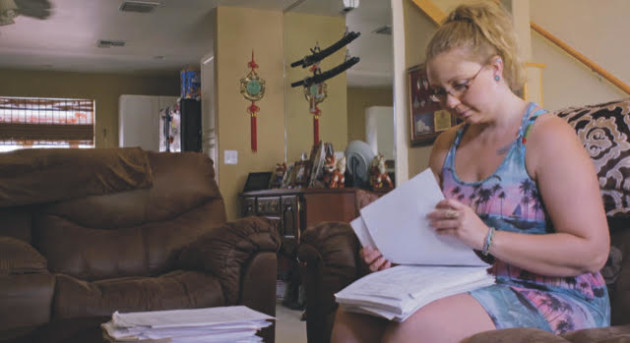
- No Comments
January 16, 2020 by admin
Treating Pregnant Women Like Criminals
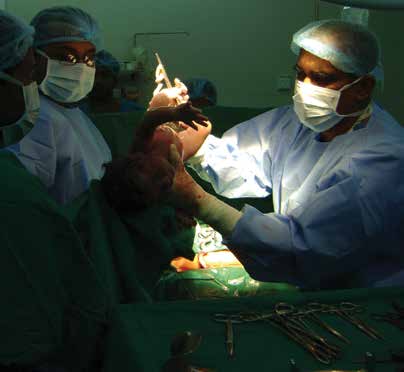
Flash to 2011, when Rinat Dray, who previously had two cesareans that left her debilitated and in pain for months, decided to try for a vaginal birth at Staten Island University Hospital in New York. As her labor progressed, her doctor made the decision, without even a court order, to cut the baby out against her will, slicing into her bladder in the process.
Dray has been suing the hospital for years, so far without success. Despite New York State’s new pro-choice Reproductive Health Act, the Kings County Supreme Court held in October that the state has “an interest in the protection of viable fetal life after the first 24 weeks of pregnancy” that overrides a mother’s objection to medical treatment, “at least where the intervention itself presented no serious risk to the mother’s well being.”
This is New York, not Alabama.
As Lynn Paltrow, the director of National Advocates for Pregnant Women, told me by phone, “The Dray case makes clear that all you need is a doctor who asserts that the fetus is at risk, and suddenly you don’t have any rights.” Around the country, other pregnant women have been threatened with Csections or had to undergo them against their will.
This is in spite of the fact that the cesarean rate in the United States is 32 percent—far higher than the World Health Organization’s recommended rate of 10 to 15 percent. It’s also in spite of court rulings that under no circumstances can one person be forced to have a medical procedure, such as a bone marrow transplant, to benefit another. What this amounts to is that pregnant women have fewer rights than other people and the fetuses they carry have more.
The criminalization of women’s behavior during pregnancy is another gift from the anti-abortion movement.
KATHA POLLITT, “Fetal Personhood Is Maternal Punishment,” The Nation, December 2, 2019
- No Comments
January 16, 2020 by admin
This Year, We Will Fight for Abortion.
Abortion rights are suspended from a precipice in states across the country. Activists are fighting not only unjust laws, but also our own side’s fatigue after decades of backlash.
How to find clarity and purpose in the middle of this sense of overwhelm, and share space with other urgent issues — from the environment to immigration? Here is how an intergenerational cross-section of leaders, activists and writers plan to rededicate their selves to abortion rights in the coming months. Within each of these plans is a list of ways for us, too, to take action.
In 2020 I will work to elect those who will let women decide when or whether they will have a child and support the centers that are providing the services to women— including creating them ourselves! Only if we organize, can we change this world.
HEATHER BOOTH is an American civil rights activist, feminist, and political strategist and the founder of the Jane Collective, a pre-Roe network of underground abortion services.
I will become an abortion doula to guide folks undergoing the procedure.
STEPH BLACK is a writer and activist in DC who is passionate about the intersections of Judaism and feminism.
I plan to do a number of things. Here are some:
• Make sure everyone knows about Euki, a free app released by Women Help Women that has information about how and where to access an abortion in the U.S., including how to self-manage an abortion.
• Talk more openly and honestly about the challenges of motherhood in hopes of giving others permission to do the same, and point to the systemic inequalities (lack of universal childcare, lack of one-year paid parental leave, workplaces hostile to families, etc) that lead to this so moms stop blaming themselves for not being perfect. We can’t “life hack” our way out of parenting problems when really, the systems are failing us. This is reproductive justice too.
• Hold the leaders of reproductive health, rights, and justice organizations accountable for creating healthy work environments for their staff, who are doing the majority of the work trying to keep abortion legal in this country and deserve to have the best benefits and salaries.
• Hold journalists, movement leaders, and funders accountable for centering the voices, experiences, and leadership of women of color, especially Black women, and funding them at the highest level to do reproductive health, rights, and justice work
• Center racism and systemic equities in all conversations about abortion, and make sure every panel, article, or event about abortion has multiple people who’ve had abortions on/in it.
• Continue to make monthly donations to my local abortion fund and abortion funds in the South and Midwest, and to All-Options, who provide emotional support to people through all pregnancy experiences.
STEPH HEROLD is a researcher who studies depictions of abortion on TV and film while chasing after a two-year-old and a dog.
This year I’m committing to calling out abortion stigma when I see and hear it. Abortion stigma is negative and incorrect beliefs about abortion. Sometimes abortion stigma is easy to recognize, i.e. “Abortion is dangerous.” This is demonstrably untrue, according to actual science. Sometimes, though, it’s more subtle and insidious, like, “I would never have an abortion, but it’s fine for other people,” and, “No one wants to have an abortion.” Abortion stigma literally prevents people from being able to access abortion care and from seeking it, even when they know it’s what they want, because yes, sometimes people actually do want to have abortions. So this year, I’ll be unrepentantly yelling about abortion stigma, and this is your warning.
CHANEL DUBOFSKY writes fiction and non-fiction in Brooklyn, NY.
As a writer, this year I will find new ways to deepen and widen the conversation about abortion, without sacrificing passion or avoiding conflict. Stories can be bridges.
ELLEN MEEROPOL is the author of four novels, Her Sister’s Tattoo, Kinship of Clover, On Hurricane Island, and House Arrest.
I welcome 2020 with unapologetic enthusiasm for abortion, plans for relentless organizing to dismantle reproductive oppression, and the knowledge that we have nothing to lose but our chains. Onward, until justice is won!
PAMELA MERRITT, co-director of Reproaction, a new direct action group forming to increase access to abortion and advance reproductive justice.
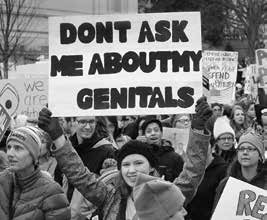
Anyone who is passionate about defending reproductive freedom can make an impact in this fight. You can send a message to your lawmakers — especially if you live in one of the 31 states that have introduced or passed extreme bans on abortion this year alone — and make it clear that you expect them to stand up for reproductive rights.
You can help make our work possible by donating to NARAL Pro-Choice America, an abortion fund in your community, or another organization fighting for reproductive freedom.
If you’re ready to dig deeper, you can sign up to volunteer and attend events in your community with NARAL.
Actions as simple as informing yourself about the threats to abortion access and talking to your friends and family about how high the stakes are can be incredibly powerful because the anti-choice movement depends on people’s silence and the spread of disinformation about abortion to advance their deeply unpopular agenda.
ILYSE HOGUE, president of NARAL Pro-Choice America
Here’s a little-known fact: federal judges serve lifetime appointments. That means that no matter who is sitting in the Oval Office in a few years or even decades, an unprecedented number of right-wing federal judges personally nominated by President Trump will still be sitting on the bench. As a direct result, generations of women could lose their reproductive rights. They will lose them on our watch.
It isn’t often that you see crowds protesting outside of Federal District Courts, as thousands did in D.C. during the Brett Kavanaugh hearings.
It is time for that to change.
We must harness that energy in our local communities, too. Federal courts, unlike a bill in Congress or a legislative push in a state house, seem distant to most voters. But changing them is completely within reach. And women can and should drive that change — before, during and after these judges are nominated.
Democrat and Republican members of Congress need to be held responsible for allowing the undermining of our courts.
SHEILA KATZ, CEO of National Council of Jewish Women
We will raise awareness of Crisis Pregnancy Centers and the danger they pose to reproductive healthcare through our Pro-Truth campaign. Crisis Pregnancy Centers exist as a service arm of the anti-abortion movement, working to keep pregnant people from being able to access the full spectrum of reproductive healthcare choices, including abortion. Our campaign works to educate people about Crisis Pregnancy Centers, and to advocate for laws to regulate these fake clinics. You can find out more and get involved at protruthny.org.
AVIVA ZADOFF is the Director of Advocacy and Volunteer Engagement National Council of Jewish Women New York
- 2 Comments
January 7, 2020 by Arielle Silver-Willner
The Fake Abortion Clinics That Mislead Patients
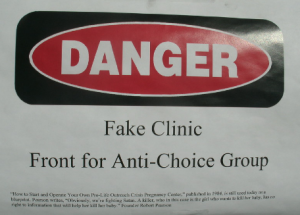
You’re well aware of the dire state of reproductive justice in the United States. You know that recent legislative moves such as the so-called “Heartbeat Bills” and the reduction of funding for Planned Parenthood severely threaten the lives of all folks capable of pregnancy or experiencing health conditions that affect the female reproductive system.
But there’s another threat to reproductive justice which works in tandem with these laws. Because even as abortion access gets choked by a million restrictions, Crisis Pregnancy Centers proliferate.
CPCs, also known as “fake abortion clinics” or, euphemistically, “Pregnancy Resource Centers” are essentially anti-choice hubs of misinformation. Often located in close proximity to an abortion-providing women’s health center such as Planned Parenthood, they aim to reach pregnant, option-seeking people before they make the choice to terminate. Many are religiously affiliated. However, as nonprofit organizations, they are also eligible to receive Title X funding.
In New York City, CPCs must adhere to legal guidelines intended to ensure that visitors are aware that they are not entering an abortion clinic, or even a medical center. New York City Local Law 17 requires these offices to display disclosure statements in both English and Spanish, advising visitors that they do not employ licensed medical professionals, and thus conveying that they will be receiving social services, but not medical services. However, Centers outside of NYC are entirely unregulated, as they are not technically medical centers or businesses. Even so, they can and do interfere with the health of their “patients.”
- 1 Comment
December 11, 2019 by Sheila Katz
The Threat to Abortion Rights You Might Not Know About
Imagine you go to purchase birth control, but find it is no longer available.
Imagine you want an abortion, but there are no clinics left in your state.
Imagine you want to start a family and struggle with getting pregnant, so you research and turn to in vitro fertilization (IVF) and surrogacy, only to find out they’re illegal.
Imagine at every phase of family planning, your right to have a child, prevent an unwanted pregnancy, or seek an abortion – rights that should be protected by the Constitution – have been taken away.
It sounds like an episode of the Handmaid’s Tale. But last week, when Sarah Pitlyk was confirmed as a judge on the US District Court for the Eastern District of Missouri, it became a very real scenario for millions of women who want to make their own decisions on how, when, and if they should have children.
- No Comments
August 8, 2018 by Kira Yates
Five Things You Can Do Right Now for Abortion Rights
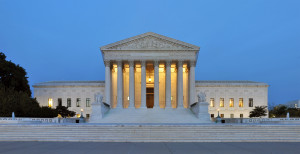 In the 45 years since Roe v. Wade was decided in 1973, feminists have worried that abortion rights are gradually being eroded as some states passed laws limiting aspects of this medical procedure. After the announcement of Donald Trump’s Supreme Court nominee, Brett Kavanaugh, the first thought in the minds of many is the future of hard-won reproductive rights. Now, the right to determine one’s own reproductive future, once guaranteed by Roe, may hang by a thread.
In the 45 years since Roe v. Wade was decided in 1973, feminists have worried that abortion rights are gradually being eroded as some states passed laws limiting aspects of this medical procedure. After the announcement of Donald Trump’s Supreme Court nominee, Brett Kavanaugh, the first thought in the minds of many is the future of hard-won reproductive rights. Now, the right to determine one’s own reproductive future, once guaranteed by Roe, may hang by a thread.
- No Comments
June 20, 2018 by Amie Newman
At the Border, We’re Seeing Exactly What America Is
It’s impossible not to see the pleas plastered on Twitter, Facebook, and Instagram: “We are better than this.” “This is not who America is.” “This is not the America I know!”
But it is who we are: what the United States is doing to families and children, specifically families and children of color, by ripping them apart at the U.S. border is part and parcel of an ongoing history. It is horrific and unbearable and inhumane. But it is exactly what America is and continues to be.
We do not like when these injustices become so evident. We prefer our cruelty to remain in the shadows. You know, like lack of access to safe and legal abortion. Or barring women, especially low-wage workers, from paid family leave, or perpetuating a medical system that continues to allow Black women to die during pregnancy and childbirth at three times the rate of White women. So, yes, this new policy is an emergency, but the oppression is definitely not new. (more…)
- No Comments
 Please wait...
Please wait...